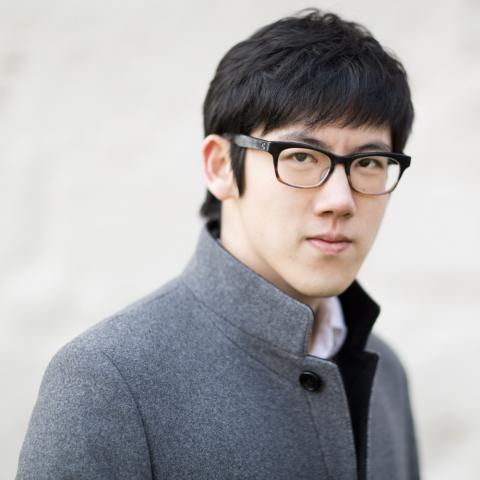Haochen Zhang’s Liszt proved both musical and highly virtuosic. The grand fortissimi were powerful and the more introverted moments properly subdued...
I hesitate to review Haochen Zhang‘s impressive recital, because a previous commitment made it possible to hear only the second half. Even that, however, made it clear that he is a musician of extraordinary technical mastery and perception. Born in 1990, he is a graduate of the Curtis School of Music, where he studied under Gary Graffman, and winner of the Van Cliburn International Piano Competition—no mean credentials! He is already regarded as something of a hero in China—or, should I say, superstar—as a packed Zankel Hall attested: there were numerous contingents of Chinese families bringing children to inspire them and countless young Chinese women. I have never seen a performer, male or female, accoladed with so many bouquets. I should mention one bit of local color before moving on to the music, which was a teenager explaining to his younger brother (10 or so) about the Well-Tempered Clavier. Where else would one overhear an interchange like this between two young brothers?
In any case Haochen Zhang’s Liszt proved both musical and highly virtuosic. The grand fortissimi were powerful and the more introverted moments properly subdued. Even at the loudest bars, he maintained a warm, pleasing tone. Zhang’s approach to texture is selective. He blurs arpeggi with ample pedal, but at the same time he makes particular lines he wishes to emphasize stand out clearly. He is less interested in overall detail and clarity—a technique which should stand him in good stead when he plays in larger halls than Zankel.
One blessing this program offered was an opportunity to hear Janáček’s In the Mists complete. Mr. Zhang’s basic sound is large, but within this he was able to explore the more intimate aspects of these highly personal expressions. The composer’s tempi are largely slow: Andante-Molto Adagio-Andante, concluded by a Presto, which is a true presto only for a few moments. Each movement begins with a distinct tune of a melancholy bent, suggestive of Czech folk-music, which slips into either more rhapsodic, more passionate, or even pained excursions. Following the melodies is the essence of this work. This was a committed performance which visited many corners of Janáček’s tonal and dynamic palette, if there was anything to criticize, it might be that Mr. Zhang made the pieces seem more virtuosic than they actually are, and the music became rather too busy for us to enter into its melodic and poetic dimensions.
Mr. Zhang closed the program with Prokofiev’s Piano Sonata No. 7, a bright, virtuosic work, which enabled him to go out in a blaze of technical display, but not without musical substance. The first movement is troubled and dramatic, the second more intimate and lyrical.
One felicitous gambit of Mr. Zhang’s appeared in several of the more intimate sections. He likes to slow the tempo slightly and holds to a steady meter and appropriate pianissimo. This reminded me of a similar approach which Alfred Brendel favored, when he was playing. However, as Zhang handled them, these passages sounded all the same. The mood, texture, and color seemed imposed like a method rather than like an expression that emerged organically from the music that preceded it. Perhaps this is a reminder that Haochen Zhang is only twenty-seven, something we are like to forget, given the general maturity of his playing. We can look forward to many years of outstanding playing and musical development ahead.
After the concert Mr. Zhang, surrounded six deep by his young countrywomen, signed copies of his latest CD on the BIS label. This includes Schumann’s Kinderszenen, which he played in the recital (before my arrival, unfortunately!), Liszt’s second Ballade, Janáček’s Sonata “From the Streets”, and Brahms’ Three Intermezzi, Op. 117. As we await Haochen Zhang’s return to New York, we can enjoy his playing on this excellent disc.
- Piano
